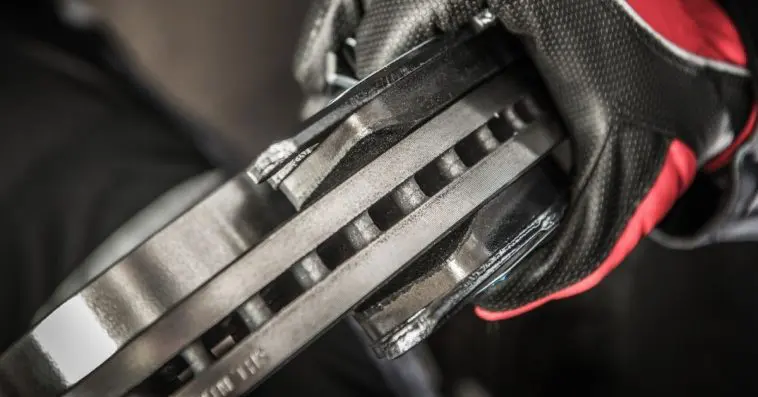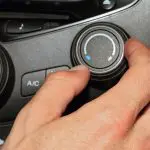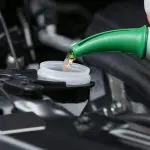Though it may sound like a routine, mundane task, getting your repairs done – such as replacing old brake pads – can be quite fulfilling, especially if they’ve been giving you trouble for a while.
The high-pitched, squealing noise new brakes often make is caused by the pads, caliper pins, and disc not functioning well together.
One of the most satisfying experiences of owning an automobile is replacing its faulty components now and then. Those who have had the pleasure of owning or driving one are sure to agree with us.
However, this doesn’t always end well and several automobile users are all too familiar with hearing an unwelcome squeal from their new brakes, among other issues.
Well, this is exactly what we’ll cover in this article – all relevant information regarding squealing new car brakes.
The following sections will cover everything about squealing brakes from the causes behind them to simple methods of dealing with them.
TABLE OF CONTENTS
My New Brakes Squealing: 7 Reasons To Find Out!
There are seven reasons your new brakes are squealing or squeaking and we’ll discuss them below. While many of these methods require self-inspection, I strongly advise you to get your brakes examined by a professional to avoid running into more serious issues.
Also, make sure you go through each potential cause carefully to remedy the issue.
1. Wet Rotors
What is perhaps the most common cause of squealing new brakes is wet rotors. In other words, moisture is the primary and most likely culprit here. Moisture can cause the formation of rust on your brake rotors.
The rust particles then lodge themselves in your brake pads. As and when you use your rotors, the rust falls off piece by piece, inhibiting the smooth performance of your brakes and emitting a squealing noise.
While this may be a fairly common issue, it’s not all that serious. In most cases, hard stops may get rid of the rust in a few days. In the meantime, you’ll need to do your best to avoid puddles and other sources of moisture.
2. Worn Out Brake Pads
This is not a new brake issue per se, but having worn out brake pads while you replace the rotor or caliper can contribute to the poor performance of your brakes – and the resulting squealing sound. When your brake pads get damaged or worn out, they start rubbing against the rotor.
Once this happens, you’re sure to hear a sharp, distracting squealing sound. Brake pads that have been used for distances of 25,000 miles and over often cause this problem and it’s not a significant one by any stretch.
3. Metal Fibers
If you’re familiar with the minutia of automobile components, you’d likely know that a good number of brake pads contain metal fibers.
Sometimes – either due to a manufacturing defect or the design of the pad itself – the metal fibers on the pads are placed a little too close to one another.
In such cases, this proximity is what causes the squealing noise you hear every time you press on your new brakes.
There is no solution for this issue as such. These metal fibers will eventually wear out and get rid of the squealing sound in the process.
4. Low-Quality Brake Pads
Now, no one wants to hear this, but buying cheaper, more affordable brake pads can do more harm than good for your car.
Not only do low-quality brake pads make it slightly uncomfortable to press down on the brakes, but they also cause that dreaded squealing noise.
Cheap brake pads could come with existing defects or the sub-standard materials used to make them could be the main cause behind the squealing noises and other brake issues.
Get the best ones here.
5. Lubrication
This is common amongst almost all automobile-related problems – a lack of proper lubrication.
However, I’d like to point out here that lubrication issues with regards to squealing new brakes only apply to cars that operate with a drum braking system.
In a drum braking system, the pistons can force your shoes closer to the drum.
Inadequate lubrication could lead to your brakes causing friction with your backplates. Once this happens, you’re sure to hear a loud and constant squealing noise.
6. Hard Stops
While hard stops are considered to be the solution when it comes to getting rid of squealing due to worn-out brake pads, they can be the problem in others.
For instance, plenty of hard stopping – or panic stopping as it’s sometimes called – can give your pads a glossy or shiny finish.
Due to this glaze, your pads will start making loud squealing noises every time you use your brakes.
Most garages deal with this issue by using sandpaper to get rid of the silky surface. You would be ill-advised to try and do so yourself.
7. Caliper Pin Issue
Your braking system has something known as caliper pins that are used both to release and apply your brake pads.
In case even one of these pins is accidentally struck in the position meant to apply the brakes, your brakes will be applied to your rotor at an unnatural angle.
However, if both your caliper pins are jammed in this way, your brake pads are very likely to get stuck against your rotor.
This in turn can lead to glazing on your pads which – as mentioned earlier – can cause a loud squealing noise. In some extreme cases, this could also cause a sharp smell of burning pads.
A caliper pin issue is generally a big indicator of your automobile requiring new rotors and brake pads as soon as possible.
How To Deal With Squealing New Brakes
Since we’ve taken a good look at the biggest potential causes of squealing in your new brakes, we can now discuss a few methods by which you can take care of them.
These methods range from affordable to downright expensive, so you must have correctly identified what’s causing your brakes to squeal before you can hope to consider solutions.
1. Change Your Brake Pads
Now this may seem quite the obvious solution to getting rid of the squealing but it’s surprisingly uncommon.
Not every car manufacturer takes into account the noise their brake pads can make, especially when they’re worn out.
This is understandable considering their priorities are usually durability and affordability.
Therefore, if your new brakes start giving you trouble with the persistence of an unpleasant squeaking sound, you can consider replacing them with pads made of a different material.
There are now brake pads available in the market that are designed specifically to minimize noise and these might just resolve your issue for good.
If you like to change your brake pads by yourself, then here’s the article I wrote for you.
2. Lubricate Regularly
As mentioned in the previous section, lubrication plays a major role in determining the overall performance of your vehicle.
If you’re facing squealing new brakes in a car with drum brakes, you can use a lubricant on the backing plates for a quick solution.
You won’t require a mechanic to resolve this issue and can do so yourself simply by using a small amount of lubricant (only brake lubricant) on your backing plates – essentially the area where your shoes come into contact with the piston.
3. Resurface The Rotors
If your brake squealing issue is caused by glazed rotors, the only solution is to take it to the garage.
This can be a difficult issue to detect for the untrained eye and is best entrusted to the hands of a professional mechanic.
Most garages charge a nominal amount to resurface your automobile’s rotors. Resurfacing your rotors is a lot less costly than opting for the alternative – replacing them altogether.
Your local garage will be able to resolve your glazed rotors issue fairly quickly with the help of some sandpaper.
4. Replace The Caliper Pins
Not all caliper pins are equipped to last as long as other components in your car. Therefore, it’s quite common to have caliper pin issues concerning squealing new brakes.
If caliper pins are indeed the issue, you have two solutions available to you: lubricate the existing pins or purchase new ones. Lubrication can help release the caliper pin or pins that have stubbornly lodged themselves against the rotors.
However, this is typically an effective solution when it comes to dealing with one pin.
If both pins are giving you trouble, that’s a good sign that you will need to replace both the calipers at your earliest convenience.
If you like to stop brakes from squealing in your car, then watch this video below:
Conclusion
All in all, having brakes that are squealing with new brakes is not a major issue at all and comes with a host of effective solutions.
Granted, not all of these solutions are affordable, but they can benefit your vehicle in the long run.
Besides, a brake issue doesn’t take place all that often and repairs on these will be a fairly rare occurrence for most vehicle owners.
Squealing brakes are more than just a source of annoyance while driving – they can be indicative of more serious issues with your brakes.
Carrying out a self-inspection or checking in to your nearest garage when you begin hearing the squealing can potentially save you hundreds of dollars.




